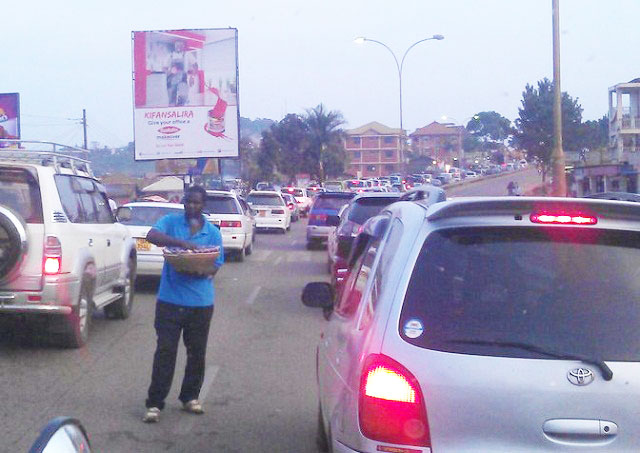
Uganda spends about 5 million litres of fuel every day. This total accounts for both petrol, diesel and kerosene. So while petrol is going for over 4000shs, lets take a conservative estimate and say, each litre of fuel is buying at 3600shs as the average of the three fuels, it would mean that everyday, as an economy, we burn 18 billion UGX in fuel.
So if traffic jam in kampala alone eats away over 125 million each day in taxis alone, it means that a sizeable percentage of fuel consumed is simply wasted and burnt away in traffic jam. So our economy is bleeding a good percentage of its total daily fuel expenditure due to traffic jam fueled by poor traffic management and control and narrow roads.
I want to say its poor management because I cannot understand why you would let certain things happen. As Uganda traffic police, how do you, for example, allow three institutions of higher learning, to conduct their graduation ceremonies on the same day? How does it pass your judgement that their locations are so sensitive to traffic and that these events would cause a breakdown in traffic flow?
When an institution is planning its dates for graduation, ideally, in any organized society, they would report to police, the police would consult with its fire department to see if it has enough supplies and manpower to man that event, consult with traffic department to find out if there are any major issues with those days and accordingly harmonise to ensure that two or more big events don’t occur on the same day, or in similar locations that would inflate the traffic on the road.
You wonder how these things are done without forethought! Does this one require one to have a PhD to understand that traffic flow is a security issue? Supposing all roads are blocked due to jam and there is a security emergency? Where would the mambas pass? (Atleast they pass through the bush but we no longer have any left in kampala). What if ambulances and other vital cars are blocked due to the clot in the transport lines, how would you account for that?
Traffic jam costs us in excess of 2.5 billion every month and its impact on productivity can not be over emphasized. When people arrive late at work, they delay delivery of services to those in need, there is more airtime and money spent calling to communicate to someone that you are delayed but will be there soon, it means that we have lost time with family as one needs to leave either too early, thus having less sleep, or get home so late and have very little time with their family.
If people arrive late at work, it also means they work less due to the fewer hours available, but also the stress and psychological effect of being in jam for hours. Before one arrives at work, they are worrying about being late, and after work, one is worrying about how late they will be home or how they will get to pick their kids from school.
In some cases, people are forced to use boda bodas as a way of getting home faster, which has inflated traffic and congestion, increased road accidents because of the errant boda riders. The effect of traffic jam is so astronomical that planners ought to start thinking about how a richer Uganda with more cars is going to work?
Traffic jam causes more expenditure on individuals, stress, lost productivity, increases congestion, accidents and most of all, denies families the opportunity to be together during the social hours. Many children see their parents very late in the night and or hardly see them in the morning. Fewer hours with our children also has consequences. You have children who are growing in the hands of nannys and maids, totally unguided and not parented.
Even with all this said, I acknowledge the efforts of the good officers who do their job to address this problem. However, more serious thinking needs to be done to cure the problem before it gets more problematic.
The cars are increasing, the roads remain narrow and the same. Traffic management still needs more thinking and refining. What will happen in the next 20 years?
 The Independent Uganda: You get the Truth we Pay the Price
The Independent Uganda: You get the Truth we Pay the Price




great reality
the research is very good .. Nice job